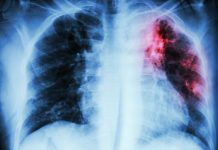Chris Norton, Managing Director, UK & Ireland, InterSystems, discusses the NHS’ current challenges, integrated care efforts, and the ways data and technology can be harnessed to inform care today, and in a post-COVID world
In March 2020, the impact of COVID-19 was largely yet to be seen. For healthcare professionals, the growing outbreak of infections – compounded with the unknown extent to which the virus would affect our ability to deliver care – foreshadowed a troubling period ahead. While a year on a feeling of uncertainty persists, many across the healthcare profession are taking this opportunity to reflect on the ways the pandemic has accelerated the pace of change and progress. Yet, more importantly, the pandemic has uncovered the challenges we continue to face across the industry and the need to embrace greater interoperability, integrated care, and solutions that not only improve patient outcomes but alleviate pressures on time-poor and exhausted staff.
Health information technology has played an increasingly significant role in healthcare over the past decade and – to a degree – informed much of the NHS’ response to COVID-19. In 2019, the NHS Long Term Plan outlined the ambition to improve digital transformation efforts, recognising the potential of connected systems to optimise healthcare in an increasingly digital world. The vision was to enable greater access and transfers of data across care settings to give providers the relevant data to improve the agility and quality of care. 2 years on and there’s still much work to be done to deliver on this vision for interoperability, though over the last year we’ve seen that much progress has been made.
Throughout the pandemic, we’ve seen how interoperability has played an instrumental role in helping thousands of healthcare professionals across the country access and securely share test results, medical records, and other data to help clinicians act decisively and more effectively during a crisis. It has facilitated more integrated and efficient care and shown us exactly what the future could and should look like for healthcare across the UK.
NHS Wales
NHS Wales’ National Laboratory Information Management System (LIMS) is a fantastic example of this in practice. Today, InterSystems’ integrated solution TrakCare Lab is used in all pathology laboratories, Welsh Blood Service and Public Health Wales, enabling patient tests and results to be shared across the whole of Wales. As a result, when the pandemic hit the country was in a strong position to rapidly react. Armed with the ability to instantly access, track and share a patient’s results across all care settings, NHS Wales was able to rapidly expand its COVID testing system in its mission to control the transmission of the disease.
What Wales was able to achieve is a testament to the fact that in many cases integrated and interoperable solutions are already in place within Trusts and Health boards that can be expanded and adapted to fit new and evolving use cases.
In fact, our staff supported one of the largest healthcare providers in Europe, NHS Greater Glasgow and Clyde (NHSGGC) to stand up the NHS Louisa Jordan Hospital, one of the 7 temporary critical care hospitals created to address the impact of COVID-19. Having already adopted TrakCare, our unified Healthcare Information system as a single point of truth bringing together patient data from across every care setting, GGC rapidly set up interfaces, wards, and data links to local GGC trusts. Clinicians, administrators, community care providers and specialists were as a result fully prepared to receive the accurate data needed to plan individual treatment pathways and inform a public health response in near real-time.
These examples really underline the potential of how more connected systems could support the NHS navigate the post-COVID landscape just as they supported its COVID response. As the NHS now faces a growing backlog of 6 million patients still awaiting treatment due to COVID-related delays, it’s safe to say that we must act swiftly now to address the demands of a looming care deficit or risk widespread burnout amongst overwhelmed staff.
As I see it, the need for greater interoperability and integrated care go hand in hand. The pandemic has clearly demonstrated our capacity and ability to deliver remote and community-based care, both as an opportunity to deliver care in the ways that patients want to receive it, and to drastically alleviate mounting pressure on primary and secondary care facilities. If different systems can communicate with each other and patient information is unified into a single accurate care record, trusts can embrace a more collaborative approach to care delivery – we could even see resource sharing from machinery to beds as well as staff working more fluidly across hospitals in the future if we embrace a more integrated approach to our NHS.
Looking ahead, it will be these efforts boosting collaboration and communication across the healthcare ecosystem, that empower the NHS to move beyond reactive care, to an ecosystem that is entirely preventative of such demand in the first place. As COVID has stimulated a more accelerated pace of change, and more openness and acceptance of technology, I feel more confident that we’re now on the right path. One thing that has been strikingly clear throughout the pandemic, is that we have now reached a stage where staff burnout is crippling frontline health and care providers.
Alongside the general pressures that come with working on the frontlines of a global pandemic clinicians are spending far too much time on administrative work, exacerbating the burden. A more integrated approach to care is an opportunity for the NHS to also improve productivity and efficiency, by empowering staff with intuitive solutions that support decision making, improve patient safety and critically save them time.
Looking to the future, if we can embed interoperability into the very fabric of our NHS, we can facilitate a more integrated care system that keeps people out of primary and acute care, through an ecosystem of care beyond the four walls of the hospital. In the long term, this shift in the way our health system operates will transform the way care is delivered across the UK, enabling far greater focus on prevention.











